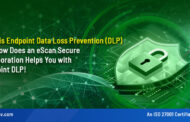Businesses must invest in customer data protection software, tools, and training because consumers’ concerns over privacy are top of mind. The more transparent a company is about its privacy policies and data collection methods, the more respect it earns from customers. In addition to protecting the information it collects, businesses are rewarded with customer trust when they take extra security measures.
There are many costs associated with security breaches, but those are not the only ones. Customer data protection failures can result in lost customers and a damaged reputation, which can adversely affect a business’ long-term health.
There is growing concern among consumers that their personal information may be compromised due to the increasing number of data breaches. It is the responsibility of any company collecting, using, storing, sharing or transferring consumer data to ensure that this information is protected in accordance with data protection laws and best practices.
How can I make sure my customer’s data is safe?
Data privacy can’t be assured with a single method, and businesses may need to use encryption, network security and access restriction tools to strengthen their collection and storage practices. Using customer data appropriately is the responsibility of all employees, and all employees should receive training on this topic.
Customer data security: Best Practices for any size business.
Customer data protection best practices address data privacy and security. Information privacy refers to the way information is collected, used, and stored, and information security refers to protecting gathered information from hackers and cybercriminals. Business can protect customer information by using security software, access control tools, and employee training. Using these six best practices, business operators can improve their customer data protection methods:
1. Ensure that consumer data is protected
Businesses are responsible for understanding what information they collect, how it is used, and stored, and whether these practices comply with customer privacy laws. There can be a variety of regulations, depending on the agencies that enforce them at the state and federal levels as well as international organizations. Business owners can find it challenging to navigate these laws, but they need to do so if they want to remain in compliance. Penalties and fines could be imposed if the company is found to be noncompliant with regulations.
2. Limit the Customer Data Collected
Businesses collect a lot of personal information, which is another piece of information that could be accessed by a malicious actor during a data breach. Companies can reduce the impact of a breach if they limit the amount of information they collect to what is absolutely necessary. A company’s records may also be less likely to be targeted by malicious actors if the information is of little value or minimal. Data protection teams should review and eliminate unnecessary records periodically to ensure that customer data is protected.
3. Combine Data Storage Security Methods
A secure data storage system can include automated technology and manual processes to ensure customer files are protected. Businesses are less likely to be targeted by hackers if it is harder for them to access their files. To deter cybercriminals, using a combination of security methods can be a smart choice. Encryption technology, which stores data in unreadable code, and PIN-protected gateways make it difficult to access files are two of the best storage security methods to keep client data secure. Physically vulnerable locations, such as server rooms, should also be addressed when it comes to storage security.
4. Assign Access Restrictions for Data Locations
Employees who are restricted from accessing the network due to their role or duties are a best practice that can benefit all companies. People are often scammed by hackers who send infected files or links that unlock network or device access when clicked. If the company has implemented access restrictions, the hacker might encounter roadblocks rather than sensitive information. Securely storing confidential documents can also minimize internal threats to the privacy of customers.
5. Invest in Cybersecurity Protection
For customer data to be protected, it is necessary to use software and tools that provide comprehensive security. Malware and viruses gaining access to files and taking over devices are a common problem for businesses. Having software that detects cyber threats early and firewalls to prevent unnecessary traffic and downloads makes customers’ personally identifiable information more difficult to access. To predict hackers’ motives and stay one step ahead, companies that collect or store sensitive data should consider adding cyber threat intelligence to their arsenal of data protection tools.
6. Conduct Employee Training
Business owners and managers who need to protect their customers’ data should consider cybersecurity awareness training. Using these courses, employees learn to recognize and protect against cyber attacks, while the information can be tailored according to the organization’s data collection methods and privacy policies. Employees should be trained on hacking scams, methods for protecting customer data, and best security practices regularly.
It is one of the most common reasons hackers hack, as they are looking to make money by stealing customer data. Cyber threats must be stopped and customer data must be protected by businesses investing in security. Embrace IT solutions from FTC to stay ahead of hackers and earn customers’ trust.







